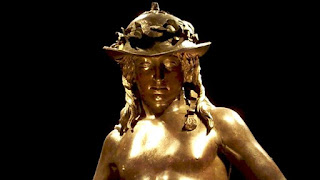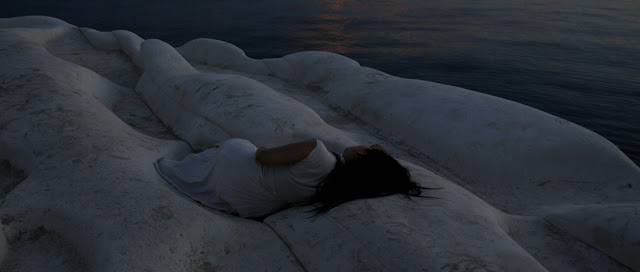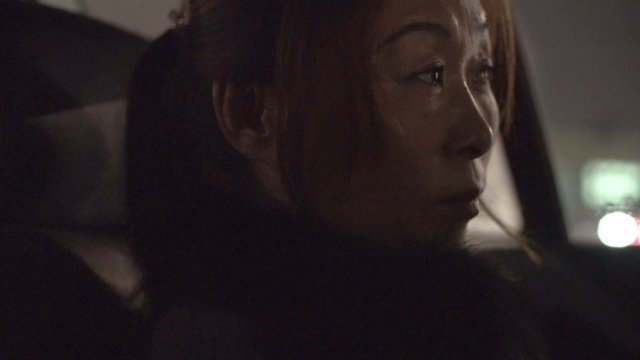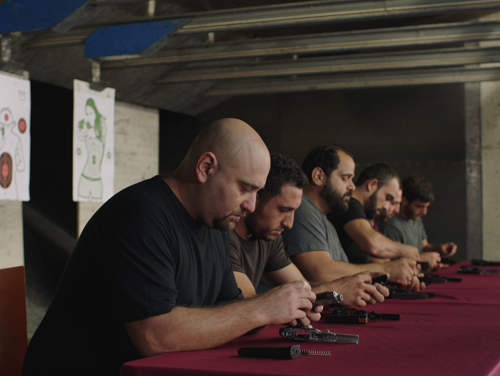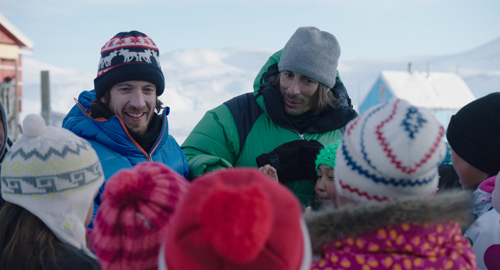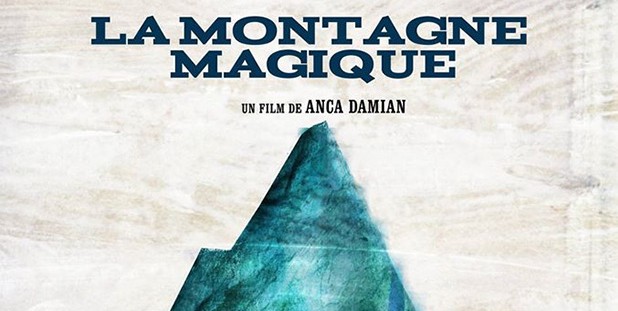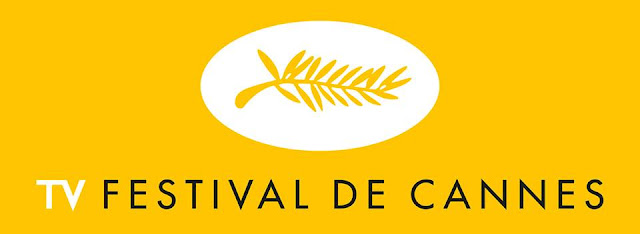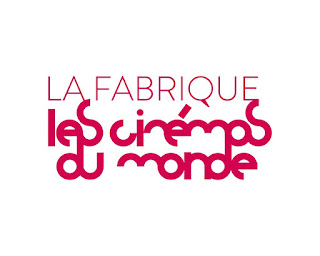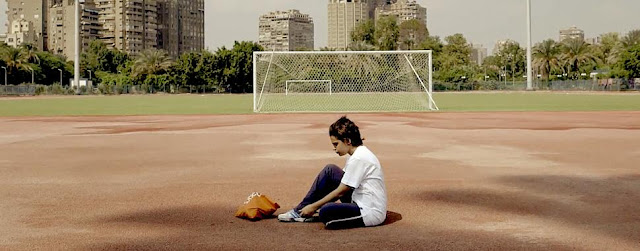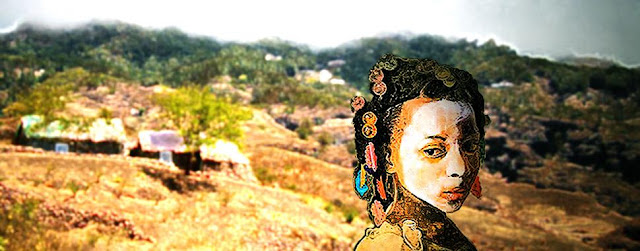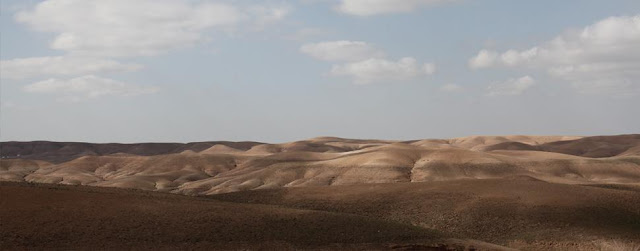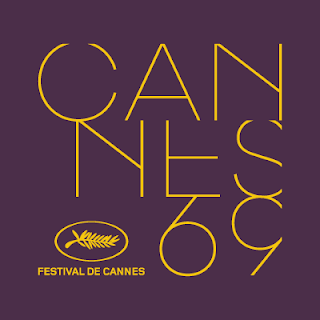 Last Wednesday fest organizers announced the Cannes Classics program for this edition and later on Friday, April 22 the news were updated. This post has the updated news for the section and yes, it's almost a cut and paste with all the info released as have added some comments when applicable. If you wish to read it at the official site go here.
Last Wednesday fest organizers announced the Cannes Classics program for this edition and later on Friday, April 22 the news were updated. This post has the updated news for the section and yes, it's almost a cut and paste with all the info released as have added some comments when applicable. If you wish to read it at the official site go here.Bertrand Tavernier with a world premiere preview, a conversation with William Friedkin, a 1966 celebration, the 70th anniversary of the Fipresci prize, Wiseman & Depardon, two giant documentary filmmakers, unknown features from far away countries, film libraries honored, Eastern Europe movies, documentaries about cinema, great popular films, genre films, science fiction, comedies, an animation film, gothic horror, westerns: this is Cannes Classics 2016.
Most of the films which will be presented will be released in theaters and on DVD/Blu-ray. In whole or in part, the Cannes Classics program will be screened at Les Fauvettes theater (Paris), at the festival Cinema Rittrovato (Bologna), at the Institut Lumière (Lyon).
World Premiere preview of Bertrand Tavernier's Documentary about French Cinema
Voyage à travers le cinéma français by Bertrand Tavernier (2016, 3h15, France).
“This work as a citizen and spy, as an explorer and as a painter, as a columnist and as an adventurer that have been described so well by many authors, from Casanova to Gilles Perrault, is not a beautiful definition of a filmmaker that we want to apply to Renoir, Becker, to the Vigo of Zéro de Conduite, to the Duvivier of Pépé le Moko, as well as Truffaut, Franju or Demy. To Max Ophuls and also Bresson. And to less known directors whom, during a scene or a film, sparkle an emotion, find some surprising truths. I would like this film to be an act of gratitude to all the filmmakers, writers, actors and musicians that have appeared suddenly in my life. Memory warms up: this film is a bit of coal for winter nights.”
A Little Bear-Gaumont-Pathé coproduction, with the participation of CANAL+, CINE+, of the SACEM. And with the support Région Ile-de-France, in partnership with the CNC. International sales: Gaumont. Distribution in France: Pathé. The film will be released in theaters in October 2016.
Cinema Masterclass: William Friedkin
The American filmmaker will give the annual Cinema Masterclass hosted by film critic Michel Ciment on Wednesday, May, 18th. He will also introduce a restored surprise film at Buñuel Theater and Sorcerer (1977) at the Cinéma de la Plage.
Sorcerer presented by La Rabbia. A Warner Bros Restoration under the supervision of Ned Price, Vice President of Mastering at Warner Bros. and William Friedkin. Scan 4 K from the 35mm négative. Audio restoration by Aaron Levy from 35mm 4-stereo track. Color-grading supervision by Bryan McMahan. Thanks to Bob Finkelstein, Karen Magid, Craig Kornblau, Dan O’Rourke, Traci Caroll, Wallon Green, Bud Smith.
The Double Palme d'Or of 1966
The Battle of the Rails opened this mini-retrospective and the Festival de Cannes has kept on welcoming the restorations of the films which won the Palme d’Or. In 2016 we are going back to the year 1966 and its two winners, Pietro Germi and Claude Lelouch. They were awarded the prize by the jury presided over by Sophia Loren.
Signore & signori (The Birds, the Bees and the Italians) by Pietro Germi (1966, 2h, Italy/France)
Presented by Cineteca di Bologna, Istituto Luce - Cinecittà, DEAR International. Restored by Cineteca di Bologna, Istituto Luce - Cinecittà and DEAR International at L’Immagine Ritrovata laboratory.
Un Homme et une femme (A Man and a Woman) by Claude Lelouch (1966, 1h42, France)
Presented by Les Films 13. The film has been restored by Eclair laboratory in Vanves. It was scanned and color-graded from the original 35mm color and black and white negative with Claude Lelouch. It was digitally restored and finalized in 2K for the DCP. The sound was restored from the original mono magnetic 35mm.Restoration and digitization with the support of the CNC.
A Crossed Tribute to Raymond Depardon and Frederick Wiseman
Faits divers by Raymond Depardon (1983, 1h30, France)
Presented by Palmeraie et désert with the support of the CNC. Original negative digitized and restored frame by frame in 2K by Eclair. Restoration and color-grading supervised by Raymond Depardon who will introduce his film before the screening.
Hospital by Frederick Wiseman (1969, 1h24, USA)
Presented by Zipporah Films and Blaq Out in partnership with Doc & Film and UniversCiné, Hospital was restored in a 35 mm copy by the Library of Congress Audiovisual Conservation Center from original camera negatives in the Zipporah Films Collection.
Upon this occasion Frederick Wiseman will be present at Cannes and be awarded the Prix Consécration by France Culture radio station.
The First Prize of the FIPRESCI, upon the Ocassion of the Celebration of the 70th Anniversary of the Prize of the International Federation of Film Critics
Farrebique by Georges Rouquier (1946, 1h27, France)
Presented by Les Documents cinématographiques. The film was digitized and restored by Eclair with the support of the CNC. The 2K restoration has been made from a nitrate negative and nitrate interpositive. Cristina Martin at the Documents Cinématographiques coordinated and managed the project.
Nine Documentaries About Cinema
Cannes Classics programs documentaries as every year—a way to tell the history of cinema by cinema itself. Let me remind you that the following plus all the other documentaries will be eligible for the second L'Œil d'or (The Golden Eye), the award created in 2015 by SCAM - Société Civile des Auteurs Multimédia
The Cinema Travelers by Shirley Abraham and Amit Madheshiya (2016, 1h36, India)
Presented and produced and by Cave Pictures (India). The portrait of a traveling movie theater in India, which continues to bear the magic of the images to a stunned audience, is faced with technological, numerous and complex changes. A projector repairman narrates film changes with poetry, philosophy and pragmatism.
The Family Whistle by Michele Russo (2016, 1h05, Italy)
Presented by American Zoetrope, produced par Ulisse Cultural Association. The Coppola family—their arrival in the US, their links with their native Italy and their relationship to music. A lot of interviews and malicious anecdotes from one of the greatest clans of today’s cinema. With Francis Coppola and Talia Shire.
Cinema Novo by Eryk Rocha (2016, 1h30, Brazil)
Presented by FiGa Films. Produced by Aruac Filmes & Coqueirão Pictures, co-produced by Canal Brasil & FM Produções. A political and poetic movie essay, focusing on the major films of the Cinema Novo wave in Brazil. Numerous interviews with directors Nelson Pereira dos Santos, Glauber Rocha, Leon Hirszman, Joaquim Pedro de Andrade, Ruy Guerra, Walter Lima Jr. and Paulo César Saraceni.
Midnight Return: The Story of Billy Hayes and Turkey by Sally Sussman (2016, 1h39, USA)
Presented and produced by Midnight Return LLC, in association with Old Forest Hill Productions, Inc. The story of the film Midnight Express by Alan Parker (1978) as told by those who made it: director Alan Parker, screenwriter Oliver Stone and producer David Puttnam. In parallel the real protagonist Billy Hayes discusses his personal journey and how his life has changed. Turkey, the image and the diplomatic relations of which were affected by the film, gives its point of view, as Billy Hayes tries to go back there to rebuild broken links.
Bright Lights: Starring Carrie Fisher and Debbie Reynolds by Alexis Bloom and Fisher Stevens (2016, 1h35, USA)
Presented by HBO Documentary Films, produced by HBO and RatPac Documentary Films. The life and intimate relationship of two actresses: Carrie Fisher, the heroine of Star Wars, and Hollywood legend Debbie Reynolds who starred in Singing in the Rain. The big story and the small story unfold before our eyes. A tender documentary on two golden ages of American cinema.
Gentleman Rissient by Benoît Jacquot, Pascal Mérigeau and Guy Seligmann (2015, 1h14 minutes, France)
Presented and produced by SODAPERAGA and CINE+ (Bruno Deloye). A film co-directed by Benoît Jacquot, Pascal Mérigeau and Guy Seligmann to unveil Pierre Rissient, a man of discovery—publicist, producer, director and tireless ambassador of world cinema.
Close encounters with Vilmos Zsigmond by Pierre Filmon (2016, 1h22, France)
Presented and produced by FastProd, Lost Films and Radiant Images with the participation of TCM Cinéma. To be released in French theaters. The life of cinematographer Vilmos Zsigmond. From the streets of Budapest to Hollywood he describes his out of the ordinary journey. Many performers, including John Travolta and Nancy Allen, and famous cinematographers talk, question him and we discover a complete artist.
Et La femme créa Hollywood (Women Who Run Hollywood) by Clara and Julia Kuperberg (2015, 52mn, France)
Presented and produced by Wichita Films and OCS. Exploring the exciting stories of Lois Weber, Mary Pickford and Dorothy Arzner, we discover a passionate gallery of pioneers who also created Hollywood. What do they have in common? They are all women and they have all been almost forgotten.
Bernadette Lafont et Dieu créa la femme libre by Esther Hoffenberg (2016, 65mn, France)
Presented and produced by ARTE France, Lapsus, Inthemood and INA.A journey with Bernadette Lafont, the most atypical French film actress. The film sweeps her life and stunning artistic career. Her granddaughters go back to Bernadette's dreams and her friends Bulle Ogier and Jean-Pierre Kalfon evoke their artistic and human complicity. Throughout the film Bernadette Lafont with her unmistakable voice of character actress weaves the movie of her life.
Restored Prints
As every year Cannes Classics showcases around twenty restored prints. Extra attention has been paid to invite countries which had never been invited for their patrimonial work (Slovenia, Switzerland, Pakistan, Czech Republic, Cuba, Thailand, Hungary, and Poland). Watch out for rare gems! Also, we have great classics, film libraries and films which give us news.
Perhaps not really rare gems but having the opportunity of watching restored versions of films by Tarkovsky and Mizogushi makes this year Cannes Classics edition absolutely out of the ordinary.
Die letzte Chance (The Last Chance) by Leopold Lindtberg (1945, 1h53, Switzerland)
A presentation of the Cinémathèque suisse. A restoration of the Cinémathèque suisse and the Schweizer Radio und Fernsehen (SRF) with the support of Memoriav at Hiventy laboratory.
Dolina Miru (Valley of Peace) by France Stiglic (1956, 1h30, Slovenia)
A presentation of the Slovenian Film Centre. 2K film and sound restoration from 4K scan of black and white 35 mm intermediate film positive and internegative. Restored sound from a 35mm optical sound negative. Restorations lead by Bojan Mastilović and Janez Ferlan, color grading lead by Janez Ferlan,at Iridium Film, Ljubljana. Sound restoration lead by Matjaž Zdešar. Supervised by project commission: DOP Lev Predan Kowarski and Rado Likon, director Urša Menart.
Ikarie XB 1 by Jindřich Polák (1963, 1h28, Czech Republic)
A presentation of the National Film Archive in Prague (NFA). Source for the digitization were elements preserved in the NFA, image was digitized from the original camera negative and sound from the sound negative. 4K restoration made under the supervision of the NFA in the Hungarian Filmlab. The film was digitally restored within the project "Digital restoration of Czech film heritage" which was supported by a grant from Iceland, Lichtenstein and Norway and co-financed by the Czech Ministry of Culture. Project partners were the National Library of Norway and CESNET.
Jago hua savera (Day Shall Dawn) by Aaejay Kardar (1958, 1h34, Pakistan)
A presentation of the Nauman Taseer Foundation. Image and sound restoration from the best elements possible, since the negative has disappeared, by Deluxe Restoration London. It was commissioned by Anjum Taseer.
Memorias del subdesarrollo (Memories of the Underdevelopment) by Tomás Gutiérrez Alea (1968, 1h37, Cuba)
A presentation of Les Films du Camélia and Cineteca di Bologna. Restored by Cineteca di Bologna/ L’Immagine Ritrovata laboratory, in association with Instituto Cubano del Arte e Industria Cinematográficos(ICAIC) and Les Films du Camélia. The film will be released in French theaters.
Santi-Vina by Thavi Na Bangchang (1954, 1h54, Thailand)
A presentation of Film Archive (Public Organization) in Thailand. The original material of this film was considered lost. In 2014 the original material was found in the British Film Institute as well as the release print in the China Film Archive and at the Gosfilmofond in Russia. A 4K scan and restoration was carried out from the original camera and sound negatives found at the BFI. The restoration work was carried out at L’Immagine Ritrovata laboratory.
Szerelem (Love) by Károly Makk (1971, 1h32, Hungary)
A presentation of the Hungarian National Film Fund and of the Hungarian National Digital Film Archive and Film Institute (MaNDA). A 4K Scan and Restoration from the original 35mm negatives. Digitization and restoration of the sound from 35mm magnetic tapes. Restoration made by the Focus-Fox Studio and Hungarian Filmlab. The film will be released in French theaters.
Howards End by James Ivory (1992, 2h20, United Kingdom/Japan)
A presentation of the Cohen Film Collection LLC with director James Ivory and actress Vanessa Redgrave in attendance. Digital restoration from the original camera negative held at the archive of the George Eastman Museum completed in 4K by Cineric Portugal – Simon Lund. Color grading under the supervision of cinematographer Tony Pierce-Roberts and director James Ivory by Deluxe Restoration (London) - Steve Bearman, Mark Bonnici, Graham Jones. 5.1 audio track restoration by Audio Mechanics (Burbank) - John Polito.
Decakolog 5 (Thou shalt not kill) and 6 (Thou shalt not commit adultery) by Krzysztof Kieślowski (1989, 57mn et 58mn, Poland)
A presentation of MK2 and TVP. Restoration in 2K from original image negatives by TVP in Poland. The color-grading of each episode has been supervised by the DOPs of the episode they photographed.
Momotarô, Umi no shinpei (Momotaro, Sacred Sailors) by Mitsuyo Seo (1945, 1h14, Japan)
A presentation of Shochiku Studio. The digital restoration is scanned in 4K, image restoration and projection in 2K by Shochiku Co., Ltd.
One-Eyed Jacks by Marlon Brando (1961, 2h21, USA)
A presentation of Universal Studios and The Film Foundation. Restored by Universal Studios in collaboration with The Film Foundation. Special thanks to Martin Scorsese and Steven Spielberg for their consultation on this restoration.
Solyaris (Solaris) by Andreï Tarkovski (1972, 2h47, Russian Federation)
A presentation of Mosfilm Cinema Concern. Digital frame-by-frame restoration of image and sound from 2K scan of the negative. Producer of the restoration: Karen Shakhnazarov.
Ugetsu monogatari (Ugetsu) by Kenji Mizoguchi (1953, 1h37, Japan)
Presented by The Film Foundation, KADOKAWA Corporation, and the Hollywood Foreign Press Association. Restored by The Film Foundation and KADOKAWA Corporation at Cineric Laboratories. Special thanks to Masahiro Miyajima and Martin Scorsese for their consultation on this restoration. Restoration funding provided by the Hollywood Foreign Press Association in association with The Film Foundation and KADOKAWA Corporation.
Dragées au poivre (Pepper Candy) by Jacques Baratier (1963, 1h34, France)
A presentation of the CNC and the Association Jacques Baratier. Digital restoration made from the digitization in 2K of the 35mm negatives. Restoration made by Mikros Image.
Valmont by Milos Forman (1989, 2h17, France)
A presentation of Pathé. Restoration carried out by Pathé en 2016, made in 4K by L’Immagine Ritrovata laboratory, with the support of the CNC.
Gueule d’amour by Jean Grémillon (1937, 1h32, France)
Presented by TF1 Droits Audiovisuels with the suppport of the CNC. A 4K restauration from the original negative made at Hiventy.
Masculin féminin by Jean-Luc Godard (1966, 1h50, France)
A presentation of Argos Films and TAMASA. 2K digitization and restoration from the original negative by Eclair, color-grading supervised by cinematographer Willy Kurant. Sound restoration from the sound negative by L.E. Diapason. The film will be released in French theaters.
Indochine by Régis Wargnier (1992, 2h32, France)
A presentation of Studiocanal. Digitization from the original negative and restoration frame by frame in 4K by L’Immagine Ritrovata.
Adieu Bonaparte by Youssef Chahine (1984, 1h55, France/Egypt)
A presentation of the Cinémathèque française, Misr International Films and TF1 Droits Audiovisuels. A restoration of Misr International Films and TF1 Droits Audiovisuels carried out by the Cinémathèque française with the support of the CNC, of the Fonds Culturel Franco-Américain (DGA-MPA-SACEM-WGAW), of the Archives audiovisuelles de Monaco and the Association Youssef Chahine. The works have been made from the image negative and the sound magnetic tapes at Eclair and at L.E.Diapason studio.
Pit and The Pendulum by Roger Corman (1961, 1h20, USA)
A presentation of Alta Vista Productions and MGM Studios/Park Circus. 35mm archival print made in conjunction with the Academy of Motion Picture Arts and Sciences and producer Jon Davison from the original negative at Fotokem Los Angeles with Mato DerAvanessian and supervised by Roger Corman. Damaged shots were restored digitally and re-cut into the film.
Rendez-vous de juillet by Jacques Becker (1949, 1h39, France)
A 2K restoration presented by Gaumont. Image work made by Eclair, sound restored by L.E. Diapason with Eclair. The film will be released in French theaters and on DVD/Blu-ray.
Cannes Classics Special Screenings
Terrore nello spazio (Planet of the Vampires) (1965, 1h28, Italy/Spain) by Mario Bava
A presentation by Fulvio Lucisano, Nicolas Winding Refn and CSC Cineteca Nazionale. The movie has been digitally restored from the original 35mm Kodak Eastman Color negative, courtesy of Italian International Film. The color correction via colorimetry comparison of an original 35mm positive copy courtesy of the Cineteca Nazionale was carried out under the supervision of assistant director Lamberto Bava. The digital intermediate process using 35mm Kodak polyester copies and 35mm color-positive copies by Fotocinema Roma in 2015.
Tiempo de morir by Arturo Ripstein (1966, 1h30, Mexico)
A presentation by ALAMEDA FILMS and César Santos Galindo, Alain Carradore and Sidonis Calysta. A sélection by Claudia Bollain y Goytia Alba and Michel Rocher. The film has been restored by ALAMEDA FILMS at LABOFILMS MEXICO under the supervision of Enrique Alagón, Adolfo Alagón and Gabriel Elvira at LABODIGITAL under the supervision of Charles Barthe. The film will be soon released in French theaters by Tamasa distribution and on video by Sidonis Calysta.





